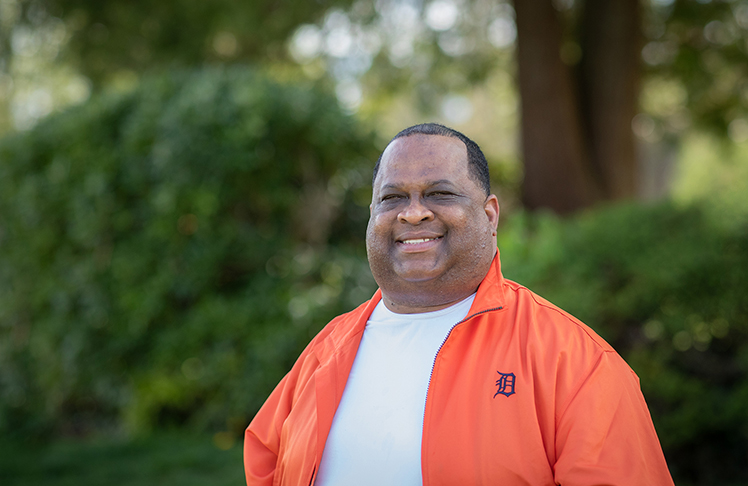
By Cynthia Flash, Special To The Seattle Medium
Benny Bridges has known since 1992 that at some point his kidneys might fail. But he tried not so expend much energy worrying about it. He got married, raised a son and daughter, worked for a local municipality, and continued to let his doctors monitor his condition.
Then he received word in 2016 that his kidney function had dropped dramatically – to the point where he needed dialysis treatments to clean the water and waste from his body. So, he took it in stride.
“For years I dealt with thinking I was going to have to be on dialysis. I knew it probably would come to that,” Bridges said. “I did well for nearly 30 years without dialysis, so I didn’t complain about it. I told the doctor `I’ll do whatever I have to do because it will save my life.’ I said `I will get off dialysis, get a transplant. I’m putting my total confidence in your hands.’”
That is what he has done for the past four years. The 58-year-old Burien resident wakes up early to get to his dialysis appointments at Northwest Kidney Centers’ SeaTac dialysis center at 6:15 a.m. every Monday, Wednesday and Friday – never missing even one. During the four hours hooked to the dialysis machine, he reads, talks on the phone, watches TV and plays with his computer tablet. He looks at it like he is on a four-hour flight, tethered to a seat with nowhere to go.
And he does it with a stellar attitude. “I’m thankful for the dialysis center that I go to. I appreciate it. It’s been a journey, no question about that. I still got a lot of stuff that I want to do and I intend on doing it. Next thing is getting a transplant done so I can have more of a normal life, more of a normal schedule. I really appreciate my weekends off.”
Bridges is optimistic he’ll find a new kidney. April is National Donate Life Month, and Bridges is one of approximately 90,000 people in the United States currently waiting for a donated kidney. This group is highly represented on organ donation waitlists – with 85% of the entire national waitlist seeking kidneys. The month is also a time to educate the public about organ donations.
Kidney donations can come from deceased donors or donors who are living. On average, a living donor kidney can function from 12 to 20 years; a deceased donor kidney can improve quality of life for eight to 12 years.
Every 10 minutes, another person is added to the national transplant waiting list.
The average time to wait for a kidney from a deceased donor is three to five years. Such donations are received from individuals who have agreed to donate their kidneys (and/or other organs) before they died. That’s why individuals are encouraged to register as organ, eye and tissue donors.
Kidney donations can also come from living donors because a person can live with only one kidney. A kidney from a living donor offers those needing kidney transplants an alternative to years of dialysis and time on the national transplant waiting list. With living donation, a patient may be able to receive a transplant in one year or less. After donation, the living organ donor’s remaining kidney will enlarge, doing the work of two healthy kidneys.
Although family members are often the most likely to be compatible living kidney donors, many people undergo successful transplants with kidneys donated from people who are not related to them. Living donors will have a full medical exam, must be at least 18 years old, and in good physical and mental health. Different transplant centers have different limits on who can donate.
To find out if you are at risk for kidney disease, take the quiz at www.nwkidney.org/quiz.
Becoming a donor can be as easy as checking a box when getting a driver’s license. More information is at LifeCenter Northwest (http://www.lcnw.org) or Donate Life America (http://donatelife.net).















